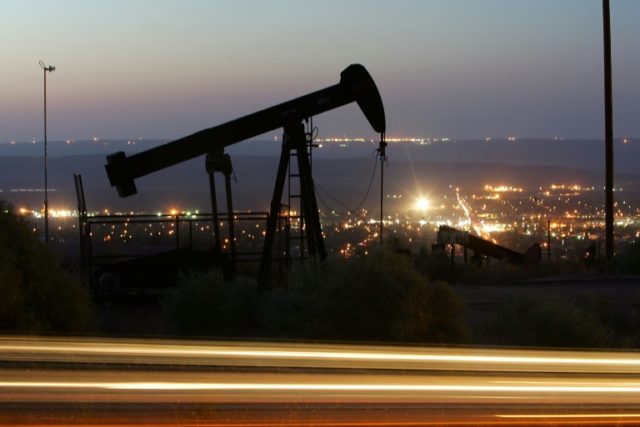Hong Kong (AFP) – Trade war worries again permeated markets across Asia on Thursday, with mixed signals from the White House fuelling uncertainty, but energy firms kicked higher thanks to another surge in oil prices.
Concerns about the Chinese economy are also hurting confidence, with the yuan continuing to weaken and mainland stocks now in bear market territory having fallen more than 20 percent from recent highs.
Dealers are struggling to get a handle on the situation owing to confusion about Donald Trump’s trade strategy.
The president seemed to back off a plan to impose tough new restrictions on Chinese investment in the United States, soothing concerns about a conflagration between the world’s top economies.
But later his economic advisor and trade hawk Larry Kudlow warned that stern measures were still being contemplated.
“If the administration doesn’t understand what the president is trying to achieve from his trade policy, that is hardly a sign of confidence for investors,” said Stephen Innes, head of Asia-Pacific trade at OANDA.
“It would be entirely natural if investors were a bit confused as indeed confusion reigns supreme.”
Equity markets fluctuated through the morning and by the break in Tokyo the Nikkei was down 0.4 percent, while Hong Kong was flat and Shanghai gave up 0.6 percent.
Sydney and Singapore each rose 0.2 percent, Seoul slipped 0.6 percent and Manila sank more than one percent.
– Yuan weakens –
With no sign of the trade spat easing any time soon there are growing concerns about the impact on the Chinese economy, with growth already showing signs of slowing and stocks plunging 22 percent since its 2018 peak in January.
The yuan is also at its weakest level against the dollar since December, having endured one of its worst runs since its mid-2015 devaluation that sparked a global market meltdown.
But speculation the People’s Bank of China is allowing the currency to weaken to offset the effects of any US tariffs were dismissed by Capital Economics.
The consulting firm said: “While a weaker currency could offset some of the economic damage done by US tariffs, the wider risks to financial stability would not be ones worth taking.”
While broader markets are swinging, energy firms continued their rally after crude prices hit a new three-and-a-half year high on the back of data showing US stockpiles plunged by the most since 2016.
The news sent Brent up 1.7 percent and WTI more than three percent higher.
The jump, which followed similar climbs on Tuesday, was aided by an outage at a key Canadian heavy-oil production facility as well as a US warning to allies that they would be hit with sanctions if they did not halt Iran oil purchases by November.
While both contracts dipped Thursday, the latest oil gains provided further support to energy firms. CNOOC, Sinopec and PetroChina were all up more than three percent in Hong Kong, while Woodside Petroleum was 1.8 percent higher in Sydney and Tokyo-listed Inpex climbed 0.79 percent.
– Key figures around 0300 GMT –
Tokyo – Nikkei 225: DOWN 0.4 percent at 22,177.58 (close)
Hong Kong – Hang Seng: FLAT at 28,346.82
Shanghai – Composite: DOWN 0.6 percent at 2,797.26
Euro/dollar: UP at $1.1564 from $1.1559 at 2100 GMT
Pound/dollar: DOWN at $1.3112 from $1.3117
Dollar/yen: DOWN at 110.07 yen from 110.27 yen
Oil – West Texas Intermediate: DOWN 29 cents at $72.47 per barrel
Oil – Brent Crude: DOWN two cents at $77.60 per barrel
New York – Dow Jones: DOWN 0.7 percent at 24,117.59 (close)
London – FTSE 100: UP 1.1 percent at 7,621.69 (close)

COMMENTS
Please let us know if you're having issues with commenting.